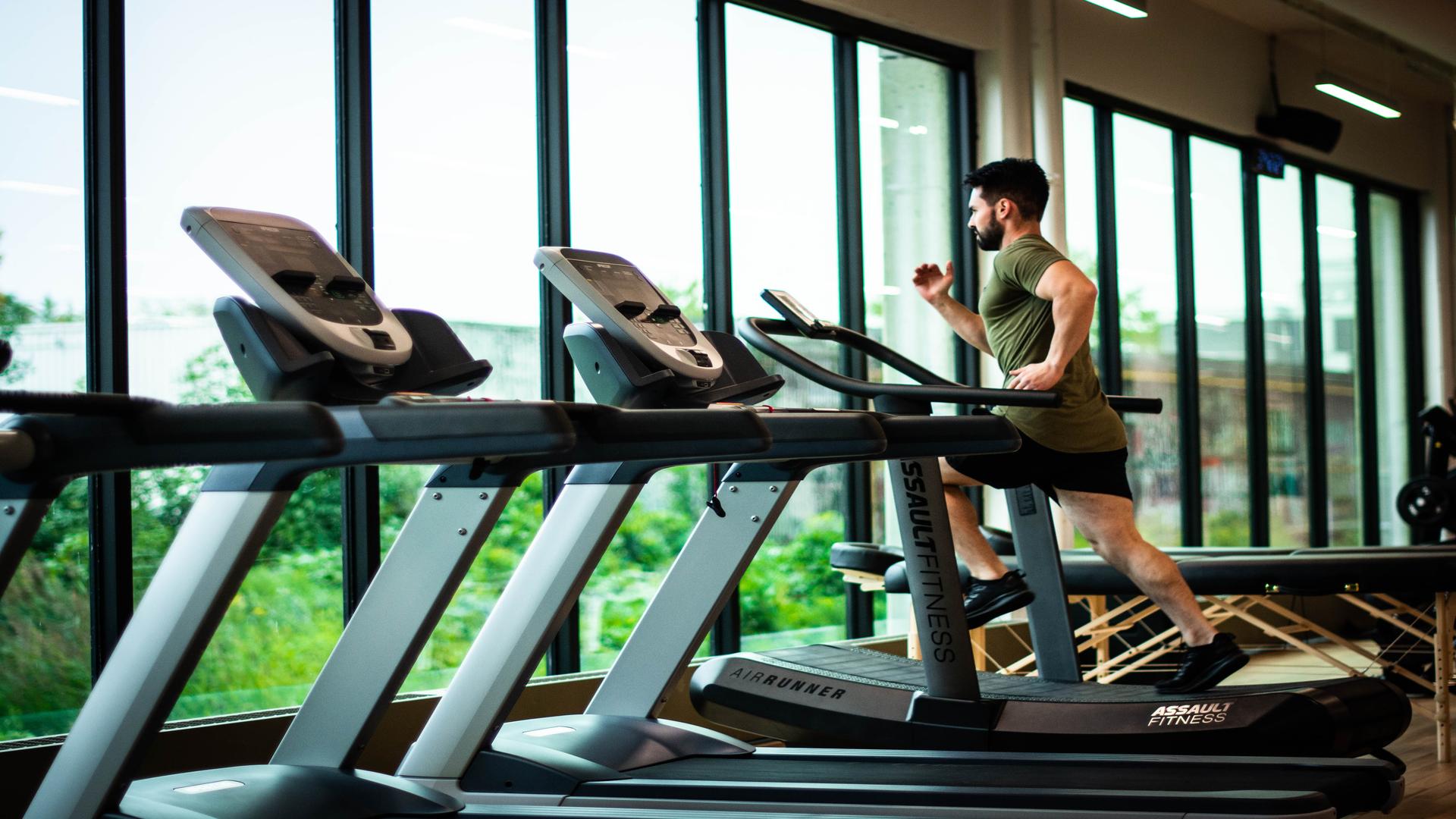
Outline:
- Introduction
- The Importance of Fitness for Seniors
- Benefits of Regular Exercise for Seniors
- Physical Health Benefits
- Improved Strength and Mobility
- Decreased Risk of Chronic Diseases
- Better Balance and Coordination
- Mental Health Benefits
- Enhanced Cognitive Function
- Reduced Risk of Depression and Anxiety
- Improved Sleep Patterns
- Types of Exercise for Seniors
- Aerobic Exercises
- Strength Training
- Flexibility and Balance Exercises
- Precautions and Safety Tips for Senior Exercise
- Consulting with a Healthcare Professional
- Starting Slowly and Gradually Increasing Intensity
- Paying Attention to Proper Form and Technique
- Staying Hydrated and Practicing Regular Rests
- Listening to Your Body and Adjusting Accordingly
- Engaging in Social Exercise Activities
- Incorporating Exercise into Daily Routine
- Creating a Supportive Environment
- Overcoming Challenges and Obstacles
- Lack of Motivation
- Physical Limitations
- Accessibility Constraints
- Fitness Programs and Resources for Seniors
- Inspiring Stories of Seniors Achieving Fitness Goals
- Conclusion
Fitness for Seniors: Staying Active and Healthy in Your Golden Years
� Fitness for Seniors: Staying Active and Healthy in Your Golden Years
� HEALTH
� FITNESS
� Discover the importance of fitness for seniors, the various benefits it brings, and practical tips for incorporating exercise into daily routine. Explore inspiring stories of seniors who have achieved their fitness goals.
Introduction
Aging is a natural part of life, but that doesn't mean it has to be accompanied by a decline in health and vitality. In fact, staying physically active and engaging in regular exercise can significantly improve the overall well-being of seniors. Fitness plays a crucial role in helping seniors maintain independence, prevent chronic diseases, and enhance their quality of life. In this article, we will delve into the importance of fitness for seniors, explore the wide range of benefits it offers, provide safety tips, and highlight inspiring stories of seniors achieving their fitness goals.
The Importance of Fitness for Seniors
As individuals age, their bodies naturally undergo changes that can affect physical and mental health. However, regular exercise can help mitigate these effects and improve overall well-being. Fitness for seniors is crucial because it:
- promotes longevity and independence,
- reduces the risk of chronic diseases,
- enhances mental health,
- improves cognitive function,
- fosters better sleep patterns,
- boosts energy levels,
- strengthens the immune system,
- increases bone density,
- improves balance and coordination.
Benefits of Regular Exercise for Seniors
Physical Health Benefits
Improved Strength and Mobility
Engaging in strength and resistance exercises helps seniors maintain muscle mass, increase strength, and enhance mobility. Strong muscles and mobile joints make everyday tasks easier, reduce the risk of falls, and enhance overall functional ability.
Decreased Risk of Chronic Diseases
Regular exercise has proven benefits in preventing and managing chronic diseases such as cardiovascular disease, type 2 diabetes, and osteoporosis. Seniors who maintain an active lifestyle have lower risks of developing these conditions and can effectively manage existing ones.
Better Balance and Coordination
Loss of balance and coordination is common among seniors, leading to an increased risk of falls, fractures, and injuries. However, incorporating exercises that focus on balance and coordination can significantly improve these abilities, leading to enhanced stability and safety.
Mental Health Benefits
Enhanced Cognitive Function
Exercise has a direct positive impact on brain health and cognitive function. Seniors who exercise regularly experience improved memory, enhanced attention span, and better problem-solving skills. Physical activity stimulates the brain, promoting the growth of new neurons and fostering overall brain health.
Reduced Risk of Depression and Anxiety
Depression and anxiety are common among seniors, often caused by factors such as loneliness, loss of loved ones, or health conditions. Participating in regular exercise releases endorphins, which are natural mood boosters, helping combat these mental health struggles and promoting overall well-being.
Improved Sleep Patterns
Older adults often struggle with sleep problems, including insomnia or poor sleep quality. Regular exercise can improve sleep patterns, helping seniors fall asleep faster and enjoy more restful nights. Exercise boosts the production of sleep-regulating hormones and reduces symptoms of sleep disorders.
Types of Exercise for Seniors
When it comes to exercise for seniors, a well-rounded fitness routine should include a combination of activities that address different aspects of fitness. Here are some recommended types of exercises for seniors:
Aerobic Exercises
Aerobic exercises, such as walking, swimming, cycling, or dancing, keep the heart and lungs healthy while promoting endurance and stamina. Aerobic activities should be performed at moderate intensity, aiming for a total of 150 minutes per week.
Strength Training
Strength training involves using resistance, such as weights or resistance bands, to build and tone muscles. Seniors should incorporate strength training at least two days a week, targeting major muscle groups while starting with lighter weights and gradually increasing resistance.
Flexibility and Balance Exercises
Stretching exercises help improve flexibility, which is essential in maintaining mobility and preventing muscle stiffness. Balancing exercises, such as yoga or tai chi, enhance stability and reduce the risk of falls.
Precautions and Safety Tips for Senior Exercise
While exercise offers countless benefits for seniors, it's essential to take precautions and follow safety guidelines to minimize the risk of injury. Here are some safety tips to consider before starting an exercise routine:
Consulting with a Healthcare Professional
Before embarking on a new exercise program, it's vital for seniors to consult with their healthcare provider. A doctor can assess their overall health, address any concerns, and provide guidance on suitable exercises based on individual needs and limitations.
Starting Slowly and Gradually Increasing Intensity
Seniors who are new to exercise or have been sedentary for a while should start slowly and gradually increase the intensity of their workouts. It's advisable to begin with low-impact activities and shorter durations, allowing the body to adapt and avoid overexertion.
Paying Attention to Proper Form and Technique
Maintaining proper form and technique during exercises is crucial to prevent injuries and ensure maximum benefit. Seniors should focus on using correct posture, breathing techniques, and following proper instructions for each exercise.
Staying Hydrated and Practicing Regular Rests
Seniors must stay hydrated during exercise sessions to prevent dehydration and maintain optimal bodily functions. It's important to have water readily available and take regular rest breaks when needed to avoid exhaustion or overheating.
Listening to Your Body and Adjusting Accordingly
Each person's fitness level and physical capabilities are unique, so it's essential to listen to the body and adjust exercises accordingly. Seniors should never push through pain or discomfort and modify movements when necessary to avoid strain or injury.
Engaging in Social Exercise Activities
Exercise becomes even more enjoyable when seniors partake in social activities. Engaging in group exercise classes, joining fitness clubs, or participating in community-based fitness programs not only promotes physical fitness but also provides opportunities for social interaction and connection.
Incorporating Exercise into Daily Routine
Making exercise a regular part of the daily routine helps seniors stay consistent and ensure they receive the full benefits of physical activity. Whether it's taking a morning walk, practicing yoga, or gardening, integrating exercise into daily life creates a healthy habit that is easier to maintain.
Creating a Supportive Environment
Having supportive family members, friends, or caregivers can make a significant difference in seniors' motivation and adherence to an exercise program. Encouragement, accountability, and companionship contribute to a positive environment that helps seniors achieve their fitness goals.
Overcoming Challenges and Obstacles
While maintaining an active lifestyle is essential for seniors, it's natural to encounter challenges along the way. Here are some common hurdles and strategies to overcome them:
Lack of Motivation
Motivation can fluctuate, making it challenging to remain consistent with exercise. Setting realistic goals, finding an exercise buddy, or varying the routine can help combat monotony and keep seniors motivated.
Physical Limitations
Seniors with physical limitations may need to modify exercises or explore specialized fitness programs designed specifically for their needs. Seeking advice from a physical therapist or fitness professional can provide tailored guidance and suitable exercise options.
Accessibility Constraints
Limited mobility or access to fitness facilities should not hinder seniors from exercising. There are numerous exercises that can be performed at home, such as chair exercises, resistance band workouts, or simple stretches. Adaptations can be made to accommodate individual situations.
Fitness Programs and Resources for Seniors
Many organizations and fitness centers offer specialized fitness programs for seniors. These programs often provide expert guidance, social interaction, and a supportive environment. Seniors can explore local community centers, senior centers, or online platforms that offer tailored exercise programs for their age group.
Inspiring Stories of Seniors Achieving Fitness Goals
Throughout the world, countless seniors have defied age stereotypes and achieved remarkable fitness milestones at various stages of life. Their stories serve as inspiration and evidence that fitness knows no age limits. These stories highlight the transformations and improvements that can be achieved through perseverance, dedication, and a positive mindset.
Conclusion
Staying physically active and prioritizing fitness is crucial for seniors to enjoy their golden years to the fullest. Regular exercise provides numerous physical and mental health benefits, promotes independence, and enhances overall well-being. By incorporating appropriate exercise activities, following safety guidelines, and creating a supportive environment, seniors can achieve remarkable fitness goals and live an active and thriving lifestyle.
� Fitness for Seniors: Staying Active and Healthy in Your Golden Years
� HEALTH
� FITNESS
� Discover the importance of fitness for seniors, the various benefits it brings, and practical tips for incorporating exercise into daily routine. Explore inspiring stories of seniors who have achieved their fitness goals.
Thank you for reading. For more insights, visit our #healthzone#3.com/blog">BLOG. We appreciate your support!



